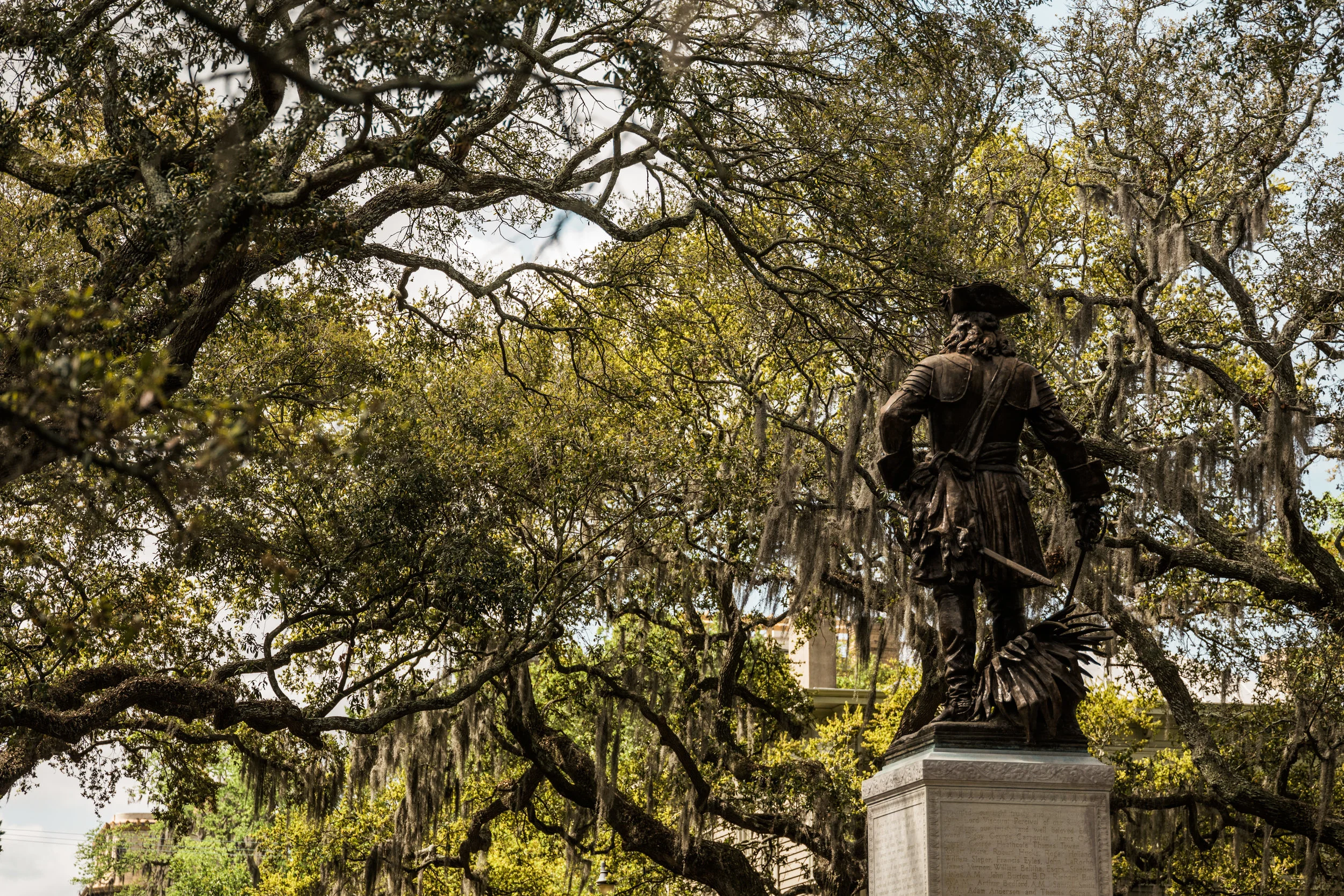Savannah's Squares - Blueprint of a Planned City
General James Oglethorpe's vision for the city of Savannah was a passion project of epic proportions.
After the death of his close friend and architect, Robert Castell, to small pox in debtors prison, he made it his mission to establish an opportunity to alleviate the rotting prison system in England. A new colony, a Utopian society of freedom and equal opportunity for the lower class of England to settle and thrive in the New World.
King George II agreed - and the colony of Georgia was established with Savannah in 1733. It would be a military buffer between Charlestown and Florida, establish new trade with flax, hemp, and silk, and give opportunity to the poor to govern themselves on this land. James Oglethorpe quickly penned the new motto of Georgia, named after the king, “Not for ourselves, but for others.”
Oglethorpe was a humanitarian at heart - but he had also seen battle first hand, and knew the importance of protecting his fledgling city from attack at the hands of Spanish forces to the south in Florida.
And so, the city was laid out with meticulous intention.
An original 4 wards ( squares as we call them today) were plotted in perfect alignment - wide open in the center where troops could gather and easily defend the city - and on either side of each square trust buildings were placed, comprised of public buildings and churches for the particular ward. On the North and South sides of each square - 10 equal sized homes. Behind them, another 10, comprising 40 dwellings per ward. Even better, each household was entitled to about 5 acres of farm land on the edge of town for growing produce, with an option of an extra 45 acres farther out.
It was a dream opportunity for hard-working and industrious settlers. You can read more in-depth about early life in Savannah in our book, Hidden History of Savannah, available here.
One of mine and T.C.’s favorite squares, Monterey Square, was laid out in 1847, long after Oglethorpe's arrival. But it's a picturesque, living example of James Oglethorpe's vision for America's first planned city.
While in Monterey Square, visit the Mercer Williams House, best known from the book-turned-movie, Midnight In The Garden of Good & Evil. Also visit Revolutionary War hero, Casmir Pulaski's monument and the Congregation Mickve Israel Synagogue, which is the 3rd oldest Jewish Congregation in North America.










